#danielle mcewan
Explore tagged Tumblr posts
Video
youtube
2021 PWBA Bowlers Journal Classic Stepladder Finals
0 notes
Text


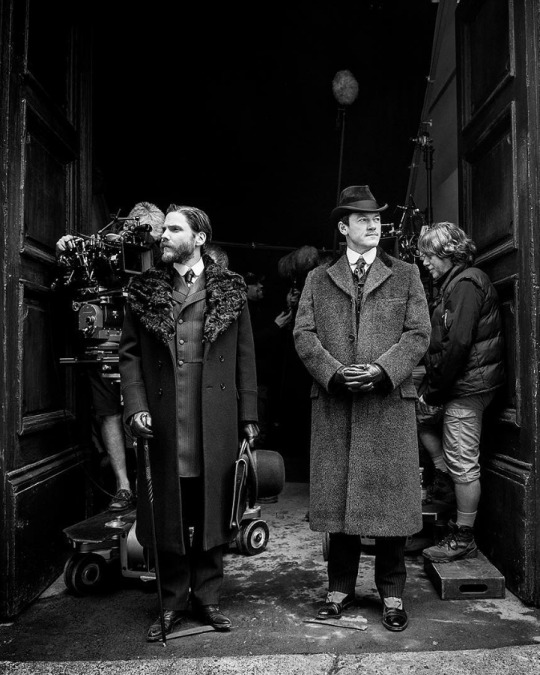
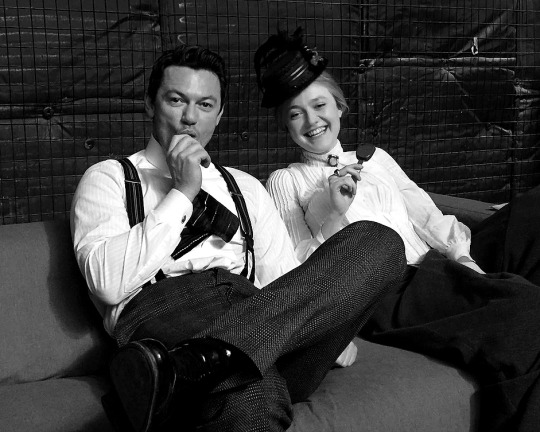
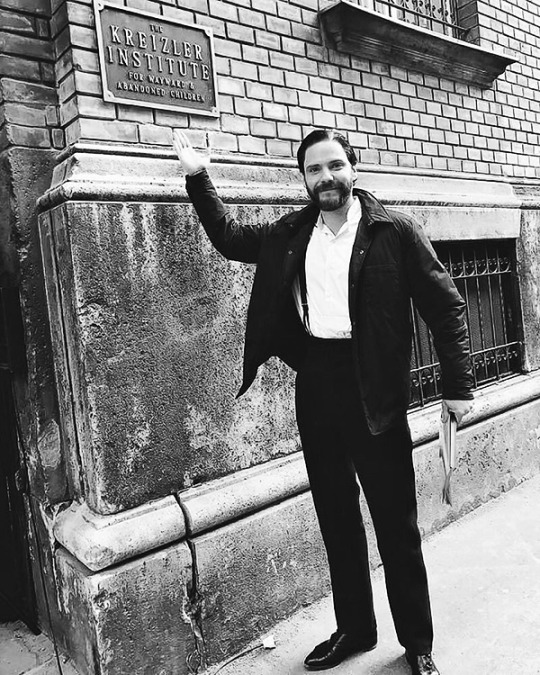
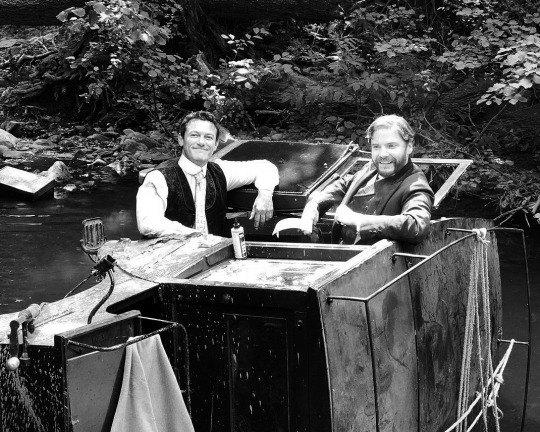
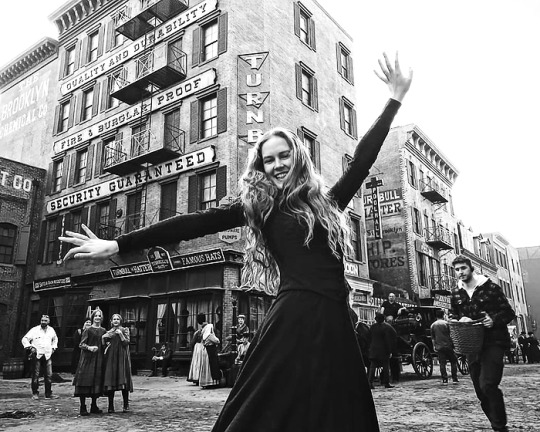

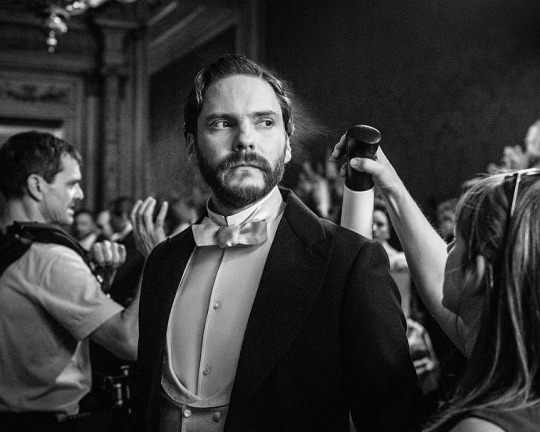
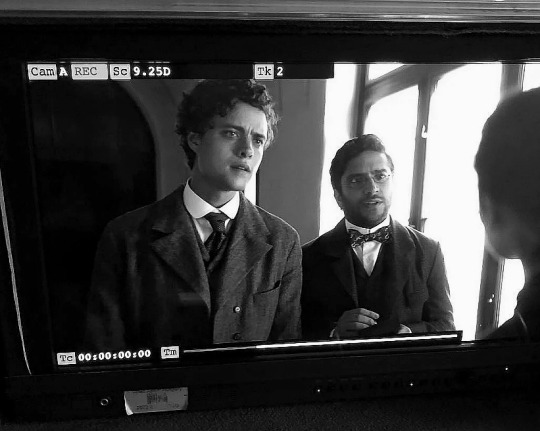




Favorite behind-the-scenes photos from The Alienist.
Sources all over the web but most of these originated from the cast members' socials and @TheAlienistTNT Instagram. Edits are mine.
#the alienist#behind the scenes#photos#daniel brühl#laszlo kreizler#luke evans#john moore#sara howard#dakota fanning#rosy mcewan#libby hatch#douglas smith#marcus isaacson#matthew shear#lucius isaacson#q'orianka kilcher#mary palmer#caleb carr#dr laszlo kreizler#TNT#TV show#black and white
174 notes
·
View notes
Text



"Shall we fight over the last cream horn?"
Agatha Christie's Marple (2004) || 4:50 from Paddington or What Mrs. McGillicuddy Saw
#agatha christie#miss marple#geraldine mcewan#amanda holden#john hannah#pam ferris#ben daniels#griff rhys jones#niamh cusack#4.50 from paddington#usergif#tvedit#great casting#lucy's wardrobe *chef's kiss*#I loved John Hannah's inspector and his little house#and the Downton Abbey staircase!
353 notes
·
View notes
Text
I'm bored, spam my asks with questions please!
#heartstopper#imogen heaney#lgbtq#lgbtq community#lgbtqia#lgbtqiia+#oseman#oseman tag#imogen#memories#nick nelson#charlie spring#sahar zahid#imogen and sahar#imogen x sarah besties#tao xu#elle argent#tara jones#darcy olsson#tori spring#micheal holden#james mcewan#isaac henderson#aled last#daniel jun#I'm bored#im so bored#bored#spam me#spam my asks
4 notes
·
View notes
Text
So, last night I got a bit of a sour menage (AGAIN), and inspired by @fictionadventurer really enjoying The Warden, I decided to sit down and finish The Barchester Chronicles (a 1980s BBC adaptation of The Warden + Barchester Towers, with Donald and Angela Pleasance, Geraldine McEwan, Alan Rickman, Nigel Hawthorne and Barbara Flynn), and I have to say I did enjoy it! Definitely the Church politics renders an interest and certain comedy to the story that are very welcome.
So, full of naïveté this morning, I thought maybe it was I who had changed taste about Trollope, and that I should try to watch The Way We Live Now (2001), which has one of those star studded casts as well (David Suchet, Matthew MacFayden, Shirley Henderson, Cillian Murphy, Joanna David, Miranda Otto, Douglas Hodge, David Bradley, Jim Carter, Helen Schlesinger). Two episodes in, I have to say I was wrong. Barchester is the exception XD
Also, what is it with Victorian writers and long protracted plotlines about young gamblers in which I'm supposed to get invested? There's Sir Felix here, there's Nikolai Rostov in War and Peace... I would have said "male writers", but then I remembered Gwendolyn from Daniel Deronda (diversity win! Female author writes a young FEMALE gambler plotline!). There's also of course Anne Brontē with The Tenant of Wildfell Hall, but that's a different and much better case because A) she doesn't make thrill scenes of gambling scenes (stale and repetitive as they always are, the gambler always loses, and almost always the opponent is a guy who cheats at cards but who never is suspected, for some reason) B) I can feel for Lord Lowborough because I'm given a sense that the man hates his vice and is actively struggling with it, instead of "uwu, isn't it sad that he can't resist the temptation when a friend invites him, how could he poor sod."
So, anyways, I guess Trollope remains a no for me, except a qualified exception XD
#i never finished the Doctor Thorne miniseries despite how much I love Tom Hollander#but there on top of the dense dull tense plot#there was Fellowes over airbrushed aesthetic that grates on my nerves#no surprises there
3 notes
·
View notes
Text
100 Books to Read Before I Die: Quest Order
The Lord Of The Rings by J. R. R. Tolkien
In Search of Lost Time by Marcel Proust
The Great Gatsby by F. Scott Fitzgerald
A Wrinkle in Time by Madeleine L’Engle
Jane Eyre by Charlotte Brontë
Pride and Prejudice by Jane Austen
Frankenstein by Mary Shelley
The Good Soldier by Ford Madox Ford
Under The Net by Iris Murdoch
American Pastoral by Philip Roth
The Unbearable Lightness of Being by Milan Kundera
Animal Farm by George Orwell
Housekeeping by Marilynne Robinson
Anna Karenina by Leo Tolstoy
Atonement by Ian McEwan
Crime And Punishment by Fyodor Dostoyevsky
The Grapes Of Wrath by John Steinbeck
Midnight’s Children by Salman Rushdie
Lucky Jim by Kingsley Amis
Slaughterhouse-Five by Kurt Vonnegut
The Sun Also Rises by Ernest Hemingway
Invisible Man by Ralph Ellison
A Passage to India by EM Forster
Of Human Bondage by W. Somerset Maugham
The Prime of Miss Jean Brodie by Muriel Spark
The Amazing Adventures of Kavalier and Clay by Michael Chabon
If on a Winter’s Night a Traveller by Italo Calvino
The Hitchhiker’s Guide to the Galaxy by Douglas Adams
1984 by George Orwell
White Noise by Don DeLillo
The Count of Monte Cristo by Alexandre Dumas
The Sound and the Fury by William Faulkner
The Stranger by Albert Camus
Lolita by Vladimir Nabokov
Oscar And Lucinda by Peter Carey
The Wind-Up Bird Chronicle by Haruki Murakami
Gulliver’s Travels by Jonathan Swift
Brave New World by Aldous Huxley
As I Lay Dying by William Faulkner
To Kill A Mockingbird by Harper Lee
Lord of the Flies by William Golding
The Portrait of a Lady by Henry James
The Call of the Wild by Jack London
Pale Fire by Vladimir Nabokov
Beloved by Toni Morrison
Tinker Tailor Soldier Spy by John Le Carré
Austerlitz by W. G. Sebald
The Scarlet Letter by Nathaniel Hawthorne
Brideshead Revisited by Evelyn Waugh
Tropic of Cancer by Henry Miller
The Age of Innocence by Edith Wharton
Mrs. Dalloway by Virginia Woolf
The Heart Is a Lonely Hunter by Carson McCullers
The Phantom Tollbooth by Norton Juster
Ulysses by James Joyce
Scoop by Evelyn Waugh
Haroun and the Sea of Stories by Salman Rushdie
Things Fall Apart by Chinua Achebe
Middlemarch by George Eliot
Are You There, God? It’s me, Margaret by Judy Blume
Clarissa by Samuel Richardson
Moby-Dick by Herman Melville
The Handmaid’s Tale by Margaret Atwood
Herzog by Saul Bellow
The Brief Wondrous Life of Oscar Wao by Junot Diaz
Wuthering Heights by Emily Brontë
Don Quixote by Miguel De Cervantes
A Bend in the River by V. S. Naipaul
A Dance to The Music of Time by Anthony Powell
The Strange Case of Dr Jekyll and Mr Hyde by Robert Louis Stevenson
Go Tell It On The Mountain by James Baldwin
Wide Sargasso Sea by Jean Rhys
Catch-22 by Joseph Heller
The Rainbow by D. H. Lawrence
Song of Solomon by Toni Morrison
I, Claudius by Robert Graves
Nostromo by Joseph Conrad
The Tin Drum by Gunter Grass
Madame Bovary by Gustave Flaubert
The Catcher in the Rye by JD Salinger
Charlotte’s Web by E. B. White
Tom Jones by Henry Fielding
His Dark Materials by Philip Pullman
Alice’s Adventures In Wonderland by Lewis Carroll
Little Women by Louisa M Alcott
Great Expectations by Charles Dickens
Portnoy’s Complaint by Philip Roth
Watchmen by Alan Moore
One Hundred Years of Solitude by Gabriel García Márquez
Robinson Crusoe by Daniel Defoe
Tristram Shandy by Laurence Sterne
On the Road by Jack Kerouac
The Big Sleep by Raymond Chandler
The Wind in the Willows by Kenneth Grahame
To the Lighthouse by Virginia Woolf
The Corrections by Jonathan Franzen
The Trial by Franz Kafka
Their Eyes Were Watching God by Zora Neale Hurston
Money by Martin Amis
David Copperfield by Charles Dickens
21 notes
·
View notes
Text



Interview - Photographed by Venetia Scott
Grooming: Charley Mcewan using Horace Skincare at The Only Agency.
Set Design: Lily Purbick.
Photography Assistants: Ryan O‘Toole and Max Kindersley.
Fashion Assistant: Nina Scott-Smith.
Production: Daniel Delikatnyi.
Production Assistant: Morgan Shepherd.
Post-production: Hempstead May.
Location: Location Partnership.
3 notes
·
View notes
Text
We Really Can Be Anything
read it on AO3 at https://ift.tt/LVpieQr by OlderSisterMagic Following on from Where "We Can Be Anything" Finishes. It's the morning after Imogens Birthday Party. There's a whole bunch of Relationships that are going through changes, some new friendships formed at the party and maybe some upcoming changes as the department store that are going to rock the boat. Words: 1716, Chapters: 1/?, Language: English Series: Part 3 of We can be Anything Fandoms: Heartstopper (TV), Heartstopper (Webcomic) Rating: Mature Warnings: Creator Chose Not To Use Archive Warnings Categories: F/F, F/M, Gen, M/M, Other Characters: Nicholas "Nick" Nelson, Charles "Charlie" Spring (Heartstopper), Imogen Heaney, Otis Smith | Omar, Christian McBride (Heartstopper), Sai Verma, Isaac Henderson (Heartstopper), James McEwan, Elle Argent, Tao Xu, Naomi (Heartstopper), Felix (Heartstopper), Sahar Zahid, Original Characters, Benjamin "Ben" Hope, Harry Greene, Sarah Nelson Relationships: Nicholas "Nick" Nelson/Charles "Charlie" Spring, Imogen Heaney/Otis Smith | Omar, Elle Argent/Tao Xu, Tara Jones/Darcy Olsson, Nathan Ajayi/Youssef Farouk, Dae-Sung "Daniel" Jun/Aled Last, Christian McBride/Naomi Russell Additional Tags: Alternate Universe - Retail, University Student Nicholas "Nick" Nelson, Autistic Charles "Charlie" Spring (Heartstopper), Charles "Charlie" Spring (Heartstopper) has OCD, Aged-Up Character(s), alternative universe - bookseller, Not Beta Read, Obsessive-Compulsive Disorder, Implied/Referenced Sexual Assault, Implied/Referenced Self-Harm, Implied/Referenced Domestic Violence, Bisexuality, Asexual Character, queer platonic relationship, Asexuality, Trans Male Character, Trans Female Character, non binary character, They/Them Pronouns for Darcy Olsson, Panic Attacks, retail hell read it on AO3 at https://ift.tt/LVpieQr
4 notes
·
View notes
Text
What/ Who I will write / post voice audios for M4M only
What I won’t write
- No homphobia
- No racism
- No body shaming
- don’t bring politics into this
- incles and misogynists is a big no
- no incest
- I will not write smut for under age characters
- I will not write piss kink , Foot fedish ( not kink shaming )
Who I will write for
Formula 1
- Charles Leclerc
-Carlos Sainz
- Lando Norris
- Oscar piastri
- max verstappen
- Pierre gasly
- Sebastian vettel
- Lewis Hamilton
- George Russell
- yuki Tsunoda
- Daniel Riccardo
Heartstopper
-Ben Hope
-Nick Nelson
- Charlie spring
-harry greene
- Issac Henderson
- James McEwan
#f1 x male reader#max verstappen#formula 1#formula 1 x reader#instagram au x male reader#lando norris x reader
13 notes
·
View notes
Text

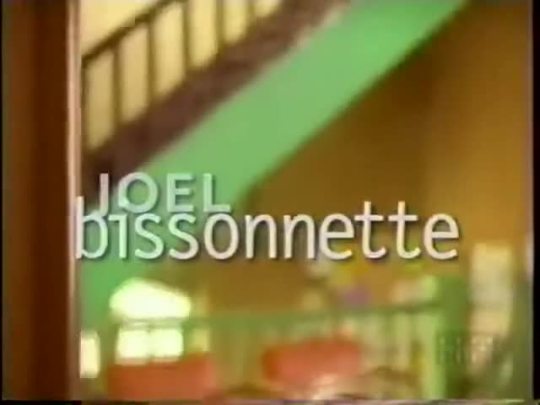





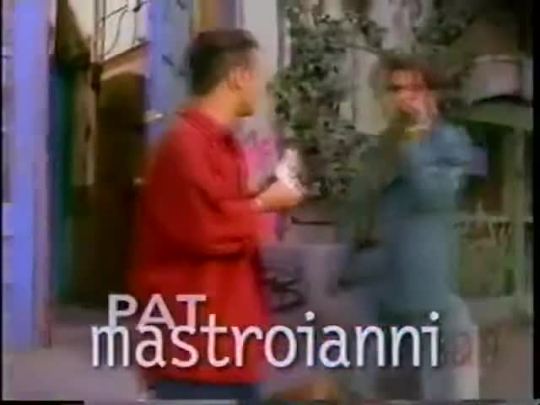

Liberty Street - CBC - January 11, 1995 - December, 1995
Drama (26 episodes)
Running Time: 30 minutes
Stars:
Joel Bissonnette as Mack Fischer
Pat Mastroianni as Frank Pagnozzi
Melissa Daniel as Chris
Kimberly Huie as Janet Beecher
Marcia Laskowski as Marsha Velazquez
Billy Merasty as Nathan Jones
Henriette Ivanans as Annie Hamer
Katherine Ashby as Lucille
Richard Zeppieri as Ernie
Dean Paras as Stuart Ball
L. Dean Ifill as Wade Malone
Jhene Erwin as Teena
Reiner Schwarz as Drive Home Dave
Hamish McEwan as Ben
Nahanni Johnstone as Cynthia
Jim Codrington as Lionel
Keith Knight as James
#Liberty Street#TV#CBC#Drama#2000's#Joel Bissonnette#Kimberly Huie#Melissa Daniel#Henriette Ivanans#Jhene Erwin#Katherine Ashby#Richard Zeppieri
3 notes
·
View notes
Text
It's time once again for the Lo-scars! My awards for the best films of 2023:
Best Director
Daniel Goldhaber – How To Blow Up A Pipeline
Dean Fleischer-Camp – Marcel The Shell With Shoes On
Hirokazu Kore-eda – Broker
Paul King – Wonka
Tina Satter – Reality
Best Actress in a leading role
Rosy McEwan – Blue Jean
Lee Ji-eun – Broker
Olivia Colman – Empire Of Light
Sydney Sweeney – Reality
Thomasin McKenzie – Eileen
Best Actor in a leading role
Harris Dickenson – Scrapper
Nicholas Braun – Cat Person
Song Kang Ho – Broker
Best Actress in a supporting role
Bae Doona – Broker
Marin Ireland – Eileen
Rachel McAdams – Are You There God? It’s Me, Margaret
Best Actor in a supporting role
Forest Goodluck – How To Blow Up A Pipeline
Josh Hamilton & Marchánt Davis – Reality
Simu Liu – Barbie
Best performance by a child or animal
Abby Ryder Fortson – Are You There God? It’s Me, Margaret
Im Seung-soo – Broker
Lola Campbell – Scrapper
The Pigeon – Empire Of Light
Seeza Saroj Mehta – Jawan
Best Original Score
Chris Roe – Blue Jean
Disasterpiece – Marcel The Shell With Shoes On
Gavin Brivik – How To Blow Up A Pipeline
Jung Jaeil – Broker
Trent Reznor & Atticus Ross – Empire Of Light
Best Picture
Avatar: The Way Of Water
Broker
Guillermo Del Toro’s Pinocchio
How To Blow Up A Pipeline
Wonka
Worst Title:
Ant Man & The Wasp: Quantumania (just call it ‘quANTuMANia’!)
Eileen (because I get the Dexy’s Midnight Runners song in my head)
No One Will Save You (generic; nothing to do with the film)
Best Title:
Cat Person (because it works on two levels!)
Extraction 2 (for keeping it simple)
How To Blow Up A Pipeline (because I get a little thrill every time I google it)
Best running theme:
Cute little creatures who’ve lost their families – Guardians Of The Galaxy Vol. 3; Marcel The Shell With Shoes On
FBI interrogations about security clearance – Oppenheimer; Reality
Getting a working vagina – Are You There God? It’s Me, Margaret; Barbie
Getting revenge on environmentally disastrous industries – How To Blow Up A Pipeline; Jawan
Home invasion – Accused; No One Will Save You
Korean adoption – Broker; Return To Seoul
Making a bomb – How To Blow Up A Pipeline; Oppenheimer
Moving to the coast with your mixed-race family – Are You There God? It’s Me Margaret; Avatar: The Way Of Water
Setting fire to rich people – The Menu; Nocebo
The Runtime of Shame:
Avatar: The Way Of Water (3hrs, 12mins)
The Golden Scissors Award for Shortest Runtime:
Fallen Leaves (1hr, 21mins)
…And The Best Movie Moment!
The final confrontation – Cat Person
“I’m a lesbian” – Blue Jean
No Sleep Til Brooklyn – Guardians Of The Galaxy Vol. 3
Possession montage – Talk To Me
Zinda Banda – Jawan
#my post#2023#film#movies#awards#tina satter#reality movie#sydney sweeney#nicholas braun#cat person#marin ireland#eileen film#forrest goodluck#how to blow up a pipeline#abby ryder fortson#are you there god? it's me margaret#trent reznor#atticus ross#empire of light#extraction 2#avatar the way of water#fallen leaves#guardians of the galaxy vol 3
4 notes
·
View notes
Video
youtube
2022 PWBA US Open | Championship Match: Danielle McEwan vs Erin McCarthy
0 notes
Note
I somehow never got around to Amis* despite the overwhelming Anglophilia of the milieu that produced me: I probably should have read him in college, but I was too busy reading the Victorians and postmodernists. His love for Bellow and Nabokov is intriguing though- i’ve often thought that one of the main weaknesses of *American* literature is the opposite tendency, a predilection for periods of extended self-loathing about the fact that we can’t really produce these intricate and elegant novels of settled hierarchal society the way that the English can- so I’m curious to know what the opposite looks like. And yes, the downbeat stuff on MLIR, Parklife and The Great Escape is generally the best Blur (although I dig the upbeat stuff too!)
*father or son!
Right, the complex that starts with Henry James's book on Hawthorne, is carried through those midcentury critics I mentioned in our James-Melville conversation (as well, significantly, both Gore Vidal and Joan Didion), and extends to the late-20th-century laments over the absent social novel of both Tom Wolfe and Jonathan Franzen. The historian-journalist streak, as opposed to the poet-prophet—except that, as we established, both Melville and James are large enough to contain both.
One way to see Amis and his cohort, again with a pop music analogy, is as the literary version of the British Invasion: American "rock" with its diverse influences (mainly Jewish rather than black, in the novelistic case as opposed to the musical) reimagined through the lens of post-imperial Britain. Here they differ from the later and belated phenomenon of Britpop, with its initial nationalist riposte to America's indie-grunge turn, deliberately de-Amerifying rock.
Thomas Meaney, reviewing Inside Story when it came out, distinguished Amis's style from the English realist tradition and made the Bellow-rock connection:
The magnetism of Bellow for Amis’s generation of English writers is well attested: Hitchens, Ian McEwan, and later Will Self and James Wood, all found something in Bellow’s high-calorie sentences that they couldn’t get at home. It was perhaps, above all, the permission to dispense with the rationed intensity of good mid-century British prose – the clean, spare, simplicity of George Orwell’s diction that reached its apotheosis in VS Naipaul and has been gently ironised by Kazuo Ishiguro.
Amis ran farther than any of his peers in the opposite direction: towards a maximalism that he has never abandoned or so much as questioned. His head-swaying to American street-wise rhythms, albeit leavened by English classicism, is the literary version of Mick Jagger crooning “Hoochie Coochie Man” at the Checkerboard Lounge with Muddy Waters, or Daniel Day-Lewis, son of Cecil, shouting, “I will find you!” in deerskin breechcloths under a waterfall in The Last of the Mohicans.
Other than Austen—a genius and so above rules or considerations of taste—the English social novel doesn't interest me much either; I've never gotten anywhere with Thackeray or Trollope, mildly dislike Fielding, cheer on Woolf's polemic against Bennett. I prefer their Romantic visionary prose tradition, which, in figures as distinct as the Brontës and Dickens, as Woolf and Lawrence and Forster, turns what appear to be social novels into myths and gospels. On this basis, I've never read Kingsley either; he doesn't really seem to "export." Martin, however, loved Fielding and Austen and has a definite undertow of the traditional English satirical social novel (Meaney's "leavened by English classicism") for all the visionary coloration he borrows from inherently aclasscal Americans.
Anyway, the chapter I'm now writing in Major Arcana, one of the last, is titled "Et in Arcadia Egirl," so I should probably stop pretending I am not also in part writing a satirical social novel.
2 notes
·
View notes
Text
🃏 ⤷ 2025 Reading List:
My reading list for 2025! This isn't super strict, just a general idea of what I'd like to read, so I might add/remove things throughout the year! I'll also mark which ones are for my uni modules >:)
Feel free to follow my Goodreads!
⤷ 2025 Reading List:
I Who Have Never Known Men by Jacqueline Harpman [FOR BOOK CLUB]
In Memoriam by Alice Winn
Hyde by Daniel Levine
The Road by Cormac McCarthy
The Light Between Oceans by M. L. Steadman
Alice's Adventures in Wonderland by Lewis Carroll
Through the Looking-Glass and What Alice Found There by Lewis Carroll [FOR UNI]
Jane Eyre by Charlotte Brontë [FOR UNI]
A Christmas Carol by Charles Dickens [FOR UNI]
Wide Sargasso Sea by Jean Rhys [FOR UNI]
Tess of the D'Urbervilles by Thomas Hardy [FOR UNI]
Mrs. Warren's Profession by George Bernard Shaw [FOR UNI]
News From Nowhere by William Morris [FOR UNI]
Affinity by Sarah Waters [FOR UNI]
The Black Album by Hanif Kureishi [FOR UNI]
Lara by Bernadine Evaristo [FOR UNI]
The Curious Incident of the Dog in the Night-Time by Mark Haddon [FOR UNI]
Saturday by Ian McEwan [FOR UNI]
The Night Watch by Sarah Waters [FOR UNI]
NW by Zadie Smith [FOR UNI]
There But For The by Ali Smith [FOR UNI]
The Lesser Bohemians by Eimear McBride [FOR UNI]
0 notes
Text
Cast: Keira Knightley, James McAvoy, Saoirse Ronan, Romola Garai, Benedict Cumberbatch, Vanessa Redgrave, Juno Temple, Brenda Blethyn, Harriet Walter, Jérémie Renier, Alfie Allen, Patrick Kennedy, Daniel Mays, Nonso Anozie, Gina McKee. Screenplay: Christopher Hampton, based on a novel by Ian McEwan. Cinematography: Seamus McGarvey. Production design: Sarah Greenwood. Film editing: Paul Tothill. Music: Dario Marianelli.




Come back. Come back to me. Atonement (2007) dir. Joe Wright
825 notes
·
View notes
Text
TEN
In the far-off days, when Superstition, in close association with the ‘evil sister’ of Ignorance, walked abroad in the land, the south-western district of Scotland shared very largely in the beliefs and terrors embraced under the general descriptive term of witchcraft. Active interference in the routine of daily life on the part of the Prince of Darkness and his agencies was fully believed in.
J. MAXWELL WOOD, Witchcraft and Superstitious Record in the South-Western District of Scotland (1911)
TWO SIBLINGS ZOOM along a zipwire, smiling and laughing in the mid-day sun while the grown-ups sit on benches with ice creams. Chaffinches chirp cheer into Silvercraigs park in the artist’s town of Kirkcudbright on a glorious Spring Saturday full of light; but something very dark happened here. Elspeth McEwan, who had tried to live a free-spirited life communing with nature in the Galloway countryside, was strangled and burned at the stake where caravans now sit. A spiritual woman, she healed with herbs and had a way with animals, but Scotland’s satanic panic was at full pelt, and there are many column yards in old records that tell of the holocaust that a paranoid, misogynistic and propagandist Church meted out to so-called witches. She was executed in August 1698 and, while she burned, her executioner, William Kirk, drank a pint of ale that cost the burgh two Scots shillings. The provost pocketed £2, 16 shillings for his input. They spent two pounds on peat and coal to burn her, one Robert Creighton received eight shillings for beating the drum, Andrew Aitken pocketed £1, 4 shillings for ‘ane tarr barle’, and Hugh Anderson got six shillings for carrying the ‘peits and colls’. Such was the arithmetic of municipal murder.
Before the world enlarged for rural communities many people thrived on stories of ghosts, warlocks, witches, kelpies, spunkies, carlins, and brownies. Cattle were protected with pieces of rowan wood as charms against witchcraft. Long before television and the internet, most Scottish folk believed in tall tales and added to them around a cottar’s ingle or in one of the inns. At a time when the Church played God, devils appeared as hares or crows. Witches were seen going through keyholes or riding on broomsticks. Odd-looking people, eccentrics, loners, herbalists and nonconformists were all fair game to individuals who took a dislike to them and accused them of having the evil eye. Disgruntled cottagers would blame an easy target when livestock died or were ill.
Daniel Defoe had passed through Kirkcudbright in 1725 and moaned about local indolence: ‘Here is a harbour without ships, a port without trade, a fishery without nets, a people without business.’ If the gentry, over whom Defoe fawned, had concentrated on economic development rather than the murder and persecution of vulnerable and innocent souls, the English spy and provocateur might have left a more meaningful reportage.
Defoe passed by long before Kirkcudbright was talked of as ‘the St Ives of Scotland’. Artists, notably the so-called Glasgow Boys, were drawn to the light of the harbour town and it inspired them to paint rural subjects in the open air. In 1901 Edward Hornel bought Broughton House in Kirkcudbright and lived there the rest of his days. His house and library are now administered by the National Trust for Scotland. Jessie M King also made her home in Kirkcudbright and Charles Oppenheimer, William Mouncey, and several other artists had strong local connections.
The denizens of present-day Kirkcudbright recently converted a disused primary school into a ‘dark sky planetarium’ for skygazers. We saunter from there down a pleasant peninsula of old woodlands carpeted with hyacinths and campions. A woman in jodhpurs walks an unknown breed of dog on the longest lead I’ve ever witnessed and mouths a hello. The peninsula divides the bays of Manxman’s Lake and Goat Well Bay in the estuary of the River Dee. Up in the wild blue, two buzzards claim the sky, soaring on the thermals past bulging birches and born-again oaks on the peninsula of St Mary’s Isle, where John Paul Jones tried to kidnap the Earl of Selkirk and Burns first spoke his ‘Selkirk Grace’.
The ancient name of St. Mary’s Isle was Trayl, but it was renamed after a priory was built by Fergus, First Lord of Galloway, in the 12th century, and dedicated to St. Mary. There is very little left of the priory; all the buildings were removed long ago for Selkirk’s mansion and pleasure grounds.
Lord Cockburn called Kirkcudbright ‘the Venice of Scotland’, although he preferred it at high tide rather than in ‘a world of squelch’. But the tide is low as we traipse, and it looks splendid. A single red kite floats above as we munch oatcakes and gaze out at Little Ross Island lighthouse, whose keeper, Hugh Clark, was murdered by his colleague, Robert Dickson. According to M. M. Harper in his Rambles in Galloway (1876), there is a cavern or underground chamber on the islet, and King William’s fleet anchored in the bay out there on its passage to Ireland.


A stroll among the requiescats in Kirkcudbright cemetery reveals the grave of Billy Marshall, the king of the gypsies, who is said to have lived till he was 120. People still place pennies on top of gravestone, along from Scotland’s most southerly pagan Viking grave. Here lie rich merchants, Covenanters and benefactors, five of the 501 victims of the torpedoing of RMS Leinster in 1918, and also local boy John McClure, who became an admiral in the Chinese Navy during the first Sino-Japanese war.


From his cell in Newgate prison in the 1790s travel writer Robert Heron, who was Burns’s first biographer, hailed Gatehouse-of-Fleet one of the finest villages in Scotland. Nowadays it is within an Area of Outstanding Natural Beauty and is itself an Outstanding Conservation Area. It is hard to credit that the gentry spent a century or so trying in vain, via cotton mills, breweries and a shipyard, to turn Gatehouse, which the Cromwellian spy Thomas Tucker had described in 1655 as ‘not worth the nameing’ into a new Glasgow. It has a medieval fortress on its doorstep, an imposing greystone streetscape, a sylvan scarf of woodland, and a decent-sized hill next door. Even Cockburn admitted 40 years after Heron’s Scottish tour, that (although it was ‘too visibly the village at the Great Man’s Gate’) Gatehouse was clean and comfortable. He added: ‘.... with its wood, its well-kept home ground, its varied surfaces, its distant bounding hills and its obvious extensive idea of a great and beautiful domain it is one of the finest in Scotland.’

Cardoness Castle, an impressive 15th-century tower, which stands prominently on a bluff off the A75 just outside Gatehouse, has a chilling history. For generations it was held by the McCulloch family, who were notoriously lawless. The McCullochs, descendants of a king of the Britons of Strathclyde, were engaged in a vendetta with the Gordon family. Sir Godfrey McCulloch murdered William Gordon and fled to France. But he was finally tracked to a house in Edinburgh where he was masquerading as a Mr Johnstone; he was brought to justice after 13 years at large and was one of the last people to be executed on the Iron Maiden, a Scottish version of the guillotine. (There is a fanciful tale that a gnome saved him from the executioner.)

Until November 12th, 1909, a famous beech tree stood in the castle park, but it was destroyed in a storm. The MacCullochs had planned to cut it down in 1800, but there was considerable protest and the poet Thomas Campbell penned a poem he called The Beech Tree’s Petition. It was reprieved – for Nature eventually to take its course.
Thomas Carlyle is reputed to have told Queen Victoria that the road from Creetown to Gatehouse of Fleet was the most beautiful in her kingdom, and the road back was second best. Sir Walter Scott, the man who invented Scottish tourism, gathered a lot of smuggling tales and myths in these parts, many of them from Joseph Train, an exciseman, who worked in Dumfries and Galloway.
In 2012 archaeologists unearthed artefacts that proved that Trusty’s Hill, near Gatehouse, was the site of a sixth-century royal stronghold. Historians had hitherto assumed that the lost Dark Age kingdom of Rheged had been in Cumbria. Here was evidence that Galloway was at the heart of Rheged, the post-Roman Brythonic kingdom that was part of the Hen Ogledd of the Old North.
Gatehouse is the Kippletringan of Guy Mannering, and Dirk Hatterick’s cave is on the nearby Heughs of Barholm, which you can reach through Ravenshall Wood from a layby on the A75. (Cockburn called the cave ‘a narrow, wet, dirty slit in a rock, produced by the washing away of the loose matter between two vertically laminated rocks, and answering Scott’s scenery in no one respect, either outside or in’.) Scott had based Hatterick on the real-life Captain Yawkins, a vicious Manx pirate who operated along the Solway.

Burns is reputed to have written ‘Scots Wha Hae’ at the Murray Arms Hotel; much of John Buchan’s The Thirty-nine Steps was based on the moors beyond Gatehouse; Dorothy L Sayers based The Five Red Herrings in the town, and a John Buchan trail has been established in the area.
The demon drink was a frequent cause of moral concern among ministers and other moralisers in those days. Not so with the more proletarian Heron, who observed: ‘Tippling houses are wonderfully numerous. I was informed by the excellent Exciseman of the place [Gatehouse], that no fewer than 150 gallons of whisky alone had been consumed here for the last six months.’
But Heron’s fondness for liquor shortened his life and impoverished him, which is why he had been imprisoned in Newgate for debt.


The bohemian maverick Alexander Trocchi had an addictive personality too. That future bad boy of the literary world, and pornographer, was evacuated to Galloway during the war, to be schooled at what is now Gatehouse’s Cally Palace Hotel. Hugh McMillan, author of McMillan’s Galloway, told me Trocchi might have been expelled but for the fact that his great-uncle Tito was a cardinal on the shortlist to succeed Pope Pius XI.
‘He became obsessed with the number of UFO sightings in the area and, with a group of mates, started a secret society to discuss and speculate about them,’ said McMillan. ‘They dressed in tin foil suits and formed a ‘Martian Party’, which romped home in the school elections, beating Labour to a distant second.
‘Due to his many escapades, Trocchi nearly left school without the vital leaving certificate, but the headmaster relented and stuffed it through the bus window as he was leaving for Glasgow. I’m presuming that it’s easier to commemorate Jim Barrie because he didn’t pimp his wife out for heroin like Trocchi. However, a plaque would be the least we could do.’
Another obscure Galloway anecdote: if you walk the old railway line between Creetown and Gatehouse of Fleet you will come upon a bridge on which one Polish Joe, a refugee mason, inscribed the name of Hitler and a coffin when he repaired the bridge on August 15th, 1940.

#witchcraft#superstition#Kirkcudbright#execution#daniel defoe#glasgow boys#jessie m king#st mary's isle#little ross#murder#billy marshall#gatehouse#rheged#trocchi
1 note
·
View note